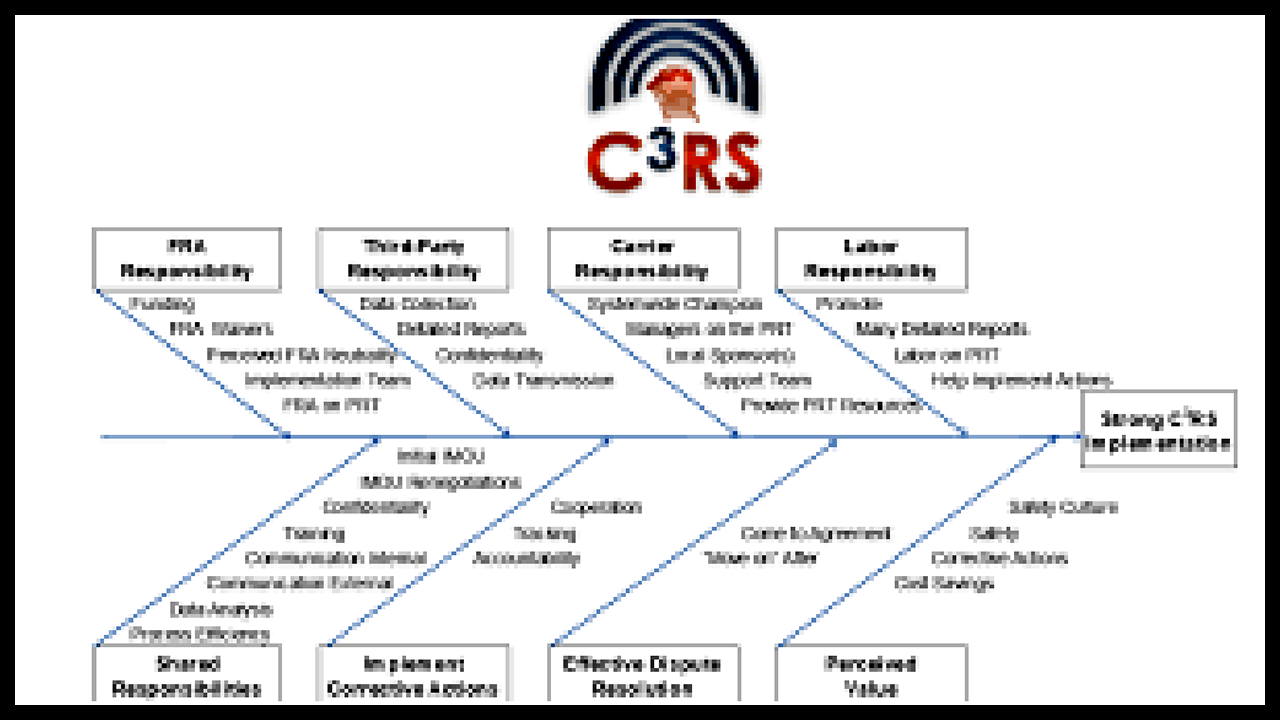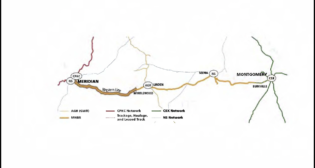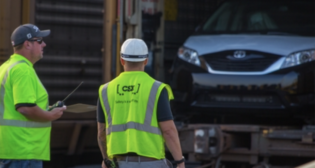
AAR: Class I’s Remain Committed to ‘Appropriate Confidential Close-Call Reporting’
Written by Marybeth Luczak, Executive Editor
The Association of American Railroads (AAR) in an Aug. 24 letter provided a progress report to Secretary of Transportation Pete Buttigieg and Federal Railroad Administrator Amit Bose on the Class I railroads’ pending participation in the Federal Railroad Administration’s (FRA) voluntary Confidential Close Call Reporting System (C3RS). The railroads committed to joining the program in March, and are working with FRA on adjustments to it, but AAR said discussions have stalled.
The move follows the Transportation Trades Department of the AFL-CIO’s Aug. 16 letter to all six Class I’s urging them to sign on to the C3RS program that will help to improve rail safety. In a New York Times report on the program, Pete Buttigieg noted that nearly six months after the railroads’ March commitment, “[i]t is past time for them to keep their promise.”
AAR President and CEO Ian Jefferies told Buttigeig and Bose in the association’s letter (download below) that the railroads were providing an update “to be clear on the progress made to date and the challenges to be resolved.” He reported that the railroads submitted in May “the necessary waiver request to FRA, and in June presented FRA with a proposed Memorandum of Understanding (MOU) that would enable nationwide participation in FRA’s C3RS program.” According to Jefferies, AAR received FRA approval of the waiver on Aug. 23. Discussions at the FRA-led Railroad Safety Advisory Committee (RSAC) continue, he wrote, “with the goal of reaching a resolution that balances the need for accountability, transparency, and safety enhancement.” However, he reported, “an unexpected hurdle has emerged, and I would like to provide clarity on this matter.”
As background, he explained, “most if not all ‘close call’ events result from employees not adhering to established safety rules put in place by their employer, creating dangerous situations the consequences of which were narrowly avoided.” As an example, he wrote, “an employee’s failure to conduct a required safety check on a railcar’s hand brake can result in a ‘close call’ in which the rule violation did not result in injury or accident, but it could have. The primary objective of the close call reporting system is to encourage employees to report such safety incidents so that employers can take proactive steps, like additional training, to prevent actual accidents in the future. The goal is to create an environment where employees feel safe disclosing near-misses that might otherwise go unnoticed and unaddressed.
“The success of this reporting system hinges on the assurance of confidentiality and immunity from disciplinary actions for employees who come forward with information. This guarantees that employees can share details without fear of negative consequences. This, in turn, cultivates an atmosphere of openness and accountability.”
According to Jefferies, the “crux of the current dispute centers on a significant nuance: situations where the employer is aware of a safety rule violation without any employee report—referred to as a ‘known event’—but the employee reports the event anyway and therefore avoids discipline.” Jefferies pointed out that “[i]f an employee repeatedly uses the system in this way simply to avoid discipline, the basic objective of the C3RS concept is thwarted. The focus of the program shifts from prevention of accidents to employment protection.”
He explained that the NASA-operated close call reporting system for the airline industry, Aviation Safety Reporting System (ASRS), “offers a valuable parallel.” Under that system, he said, “airline employees may use the ‘immunity from discipline’ provision to report events, whether known or unknown—but this privilege is limited to only once every five years. This limitation serves as safeguard against misuse of the system by repeat rule violators.” ASRS is “regularly highlighted as a model confidential reporting program,” Jefferies said, and “one in which several, but I understand not all, major airlines participate.”
Jefferies reported that “[r]emarkably, this is the issue on which the RSAC discussions about the national rail program have become stalled.” He said the Class I railroads’ “proposal would permit an employee to report unknown events to the C3RS program without limitation, and to report even known events once every three years without fear of discipline. Notably, this will immunize far more safety rule violations than the model aviation program’s five-year window. However, to date rail labor has rejected any limitation on the number of rule violations that can be reported without risk of consequence—with the exception that rail labor has agreed that an employee should not be able to report the identical type of known event (and same rule violation) more than three times in three years. Under labor’s proposal, every employee would be eligible for three allowances every three years for each different rule violation even where the railroad already knows about the incidents that are being ‘self-reported’ to it.”
Jefferies wrote that “[i]n the interest of public safety and with the understanding that society’s tolerance for risks related to freight railroads’ operation is extremely low, permitting an employee to violate the same safety rule three times in three years (or potentially violate three or more different rules three times each in three years) when the railroad already knows about the violation, without any risk of consequence, subjects the railroads, their employees, and the public to an unacceptable degree of risk.” He noted that “FRA has recently emphasized the importance of nurturing a strong safety culture at the railroads, as well as the need for employers to address risky behaviors that jeopardize the safety of both fellow employees and the public.” He said that “[r]esolving the current disagreement over reasonable limits on the repeated reporting of known events is essential to those objectives.”
“Despite the current impasse at the RSAC, some individual Class I railroads are exploring potentially integrating their own existing and long-standing confidential reporting systems—some of which have allowances for known events—with the FRA’s system,” Jefferies continued. “I know individual railroads recently have met, or plan to meet, with FRA to discuss those different approaches.”
In sum, Jefferies said the AAR “appreciates the efforts DOT is making to bring the parties together on a national system, and we remain hopeful that reason will prevail in the RSAC.” What’s paramount, he said, is the “importance of striking the right balance between safety and accountability.” He reiterated that the Class I railroads “stand ready to participate in a national confidential close call reporting program and are prepared to include immunized reporting of known events that goes well beyond the frequency tolerated by the model aviation program,” and “one way or another,” they “remain committed to appropriate confidential close-call reporting as an essential tool in their safety toolbox.”



![“This record growth [in fiscal year 2024’s third quarter] is a direct result of our innovative logistic solutions during supply chain disruptions as shippers focus on diversifying their trade lanes,” Port NOLA President and CEO and New Orleans Public Belt (NOPB) CEO Brandy D. Christian said during a May 2 announcement (Port NOLA Photograph)](https://www.railwayage.com/wp-content/uploads/2024/05/portnola-315x168.png)